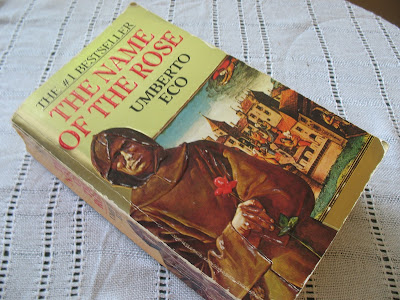It’s never too late, however, to say that I still love Dracula. This is a real vampire story: no sparkles, no love affairs, just a self-serving,
powerful, manipulative, undead monster with terrible abilities and a bloody
agenda. While Dracula is far more
emotional in nature than most English novels I’ve read, those emotions are
limited to reasonable terror, horror, despair and genuine affection among the
protagonists.
Dracula is an
adventure story told in the form of journal entries, correspondences and
recordings by most of the main characters. The tension steadily builds in the day-to-day
accounts which are supplemented with a few newspaper reports, and the overall
effect is a special kind of believability, even when things become
supernaturally weird. Knowledge is power for our heroes and they use a
rational, scientific approach to the discovery and attempted destruction of the
vampire count.
The style of story-telling is fun to read and Stoker has
done it with some skill, since each story-teller has his or her own voice.
There are many cumbersome passages, however, as Stoker relays some accounts,
including a long quotation in a newspaper report, in the supposed dialect of
the speaker. I find phonetic spellings of local vernacular difficult to get
through, and in many places I wish he would just have written everything out in
Oxford English and let me use my own imagination as to what it sounded like. In
many cases I had to rely on the good notes that came with my digital edition of
the novel in order to understand what a quoted character was saying. I suppose the
dialect adds color and realism to the story, but I, unfortunately, just find it
hard to read.
I don’t really buy into all of the symbolism of suppressed sexuality
that’s been read into Dracula by
scholars who just don’t want to enjoy a good suspense story. I suppose that’s
been the source of so much of the modern take on the vampire in current
literature. I really don’t buy into that, either, but there is one scene toward
the end of the novel in which Van Helsing contemplates the role of physical and
supernatural beauty in the power of the vampire. He has come across the coffins
of the vampire women in Dracula’s circle, servants of the count, but immensely
powerful in their own right. The commentary is laced with dialect, since
English is not Van Helsing’s first language, but it is nonetheless a moving
passage.
She lay in her Vampire
sleep, so full of life and voluptuous beauty that I shudder as though I have
come to do murder. Ah, I doubt not that in old time, when such things were,
many a man who set forth to do such a task as mine, found at the last his heart
fail him, and then his nerve. So he delay, and delay, and delay, till the mere
beauty and the fascination of the wanton Undead have hypnotize him; and he
remain on, and on, till sunset come, and the Vampire sleep be over. Then the
beautiful eyes of the fair woman open and look love, and the voluptuous mouth
present to a kiss – and man is weak. And there remain one more victim in the
Vampire fold; one more to swell the grim and grisly ranks of the Un-dead!...
No matter how you feel about vampires, then and now, this is
a good, well-written suspense story for anyone who wants an old-fashioned
thrill in their reading entertainment.
A Year of Books I've Read Before




















